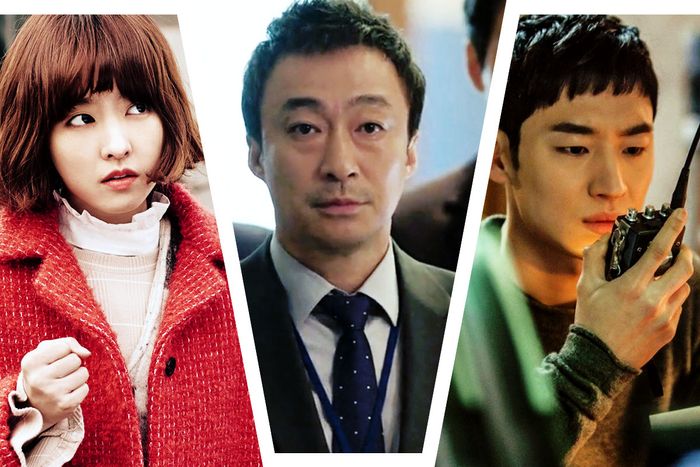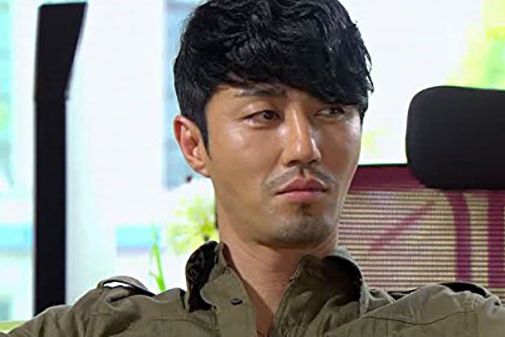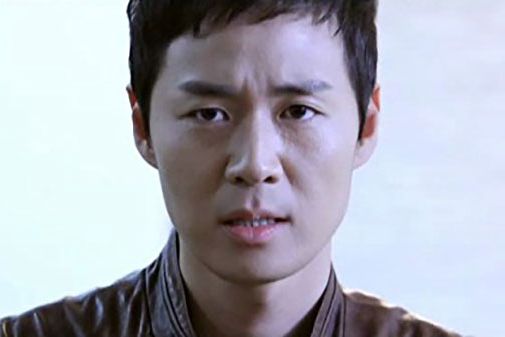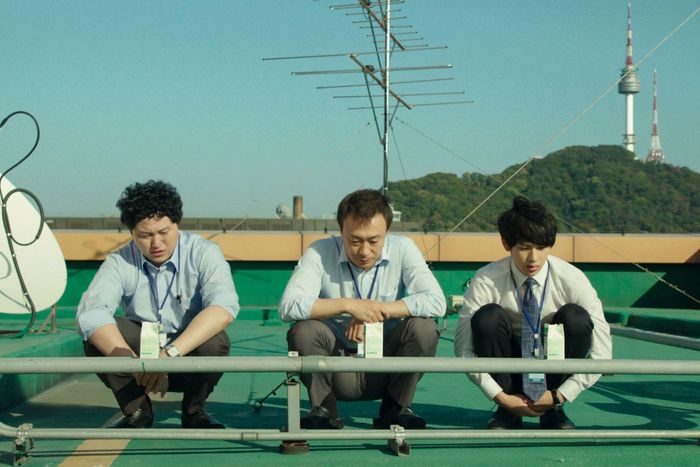
When Korean TV first came to the wider attention of U.S. audiences earlier this decade, it was primarily pitched as an addictive guilty pleasure. But like the poor girls of old-school melodramas who Cinderella-ed up the social hierarchy, Korean TV has acquired fancy new trappings in recent years thanks to international licensing fees and the development of South Korea’s domestic-cable networks. Pay channels such as tvN and JTBC, as well as newcomer-to-Korea Netflix, are producing scripted and reality television that can comfortably slide in next to international prestige shows.
That’s not to say that great Korean TV is a recent development. K-drama, as Korean scripted television is called whether it’s drama or comedy, existed long before Netflix’s Kingdom (premiering January 25) began production, is frequently richer than The Good Doctor’s source material, and has everything to do with how the structure of Korean TV allows for unparalleled emotional payoff.
South Korea produces a lot of scripted and unscripted television for a country with a population of just over 50 million people. With so many shows to produce, sometimes shot and edited the same week they’re released, K-dramas traditionally haven’t depended on cinematography to keep viewers engaged, instead firmly emphasizing the show’s story. In the past, this produced the soapy “makjang” melodramas that many people still associate with Korean TV. Over time, though, plots have de-sudsed — seeing a treacherous secretary nearly get drowned in cement is a rare pleasure these days, rather than a regular, groan-worthy occurrence.
The change seems to have been driven by a public increasingly able to stream shows from around the world with subtitles, and demanding homegrown entertainment that looks and feels more like the best of international TV. Fan service has always been a critical part of Korean TV’s development; in the past, it resulted in cracked story lines involving near-miss incest romances and birth secrets, but now, when K-pop stars are citing shows like Breaking Bad, Narcos, and Chef’s Table among their favorites, that same impulse to delight fans is resulting in cable channels and Netflix creating their own prestige K-dramas. At some point, what once looked like a guilty pleasure developed into a serious — yet often still zany and fun — joy to watch.
If you’ve ever despaired watching a U.S. show with a great concept flounder due to a revolving door of writers, the uncertainty of being on the cancelation chopping block, or breakout success that forces the narrative to proceed past its logical endpoint, meet the magical K-drama structure: mostly single-season, single-camera, single-writer shows that are never canceled or shortened, consisting of 16 to 24 episodes. Episodes typically run from 60 minutes up to almost 90 minutes for some finales, and they have far fewer commercial interruptions. Episodes air on back-to-back days, meaning that viewers get up to two-and-a-half new hours each week. In some respects, K-dramas resemble what we’d call a limited series on U.S. television, but tend to run for as many episodes as a single television season. Some popular shows are now getting second seasons, and reality-TV programs, called variety shows, have a different structure entirely, but the general rules mostly still hold.
Western commentary on K-dramas often highlights the lack of onscreen sex, but the plots are just as noteworthy for what they do have: all sorts of other kinds of connection. Sometimes the connection is platonic and hard-won over many episodes, such as when entry-level office workers begin to flourish because they become friends, and sometimes it’s as simple as the two people on the show’s promotional poster falling in love. What undergirds the best K-drama, and what makes it so attractive in our current climate, is the subconscious reassurance that although we might sometimes feel like meat suits stuck by gravity to a dying rock, meaning and belonging can still be found when people gather to eat, form a team, or become a family.
And it’s not just the story lines that offer emotional payoff. Immersing yourself in a thriving international fan culture and following television that demands the reading of subtitles and occasional trips to Wikipedia for context makes K-dramas high-effort, high-reward entertainment. Even the fluffiest rom-com requires work. Finding legally licensed streams of Korean TV with English subtitles is sometimes difficult, and it’s actually due to the popularity of K-dramas. Leading East Asian media-streaming site DramaFever, owned by Warner Bros., closed in October 2018 due to the high cost of licensing fees as international spendthrifts Netflix and Amazon have moved in to compete for streaming rights. The closure of DramaFever meant that content and licenses were taken with it to the grave, leaving subscription streaming sites Viki and Kocowa (which shares a lot of content with Viki) holding things down on the legal side while plenty of other, shadier sites provide quick, free streaming episodes with ENG SUB and a side of malware risk.
So, how does a newbie get in on the joy of K-drama? The back catalogue is deep and we don’t want you to accidentally watch the projectile-vomiting in Dr. Jin and swear off K-dramas forever, so the following ten shows have been selected for their ability to demonstrate the myriad pleasures of Korean TV. Most shows can be found on legal streaming sites such as Viki and Netflix, but for those that aren’t currently licensed for U.S. distribution — well, as experienced fans know, searching for a show’s name, the episode number, and “ENG SUB” often pays off (just mind the malware).
Strong Girl Bong-soon (2017)
Mix the badassery of Buffy the Vampire Slayer with screwball romantic comedy, add in an SVU side plot, and spray paint everything very pink.
Strong Girl Bong-soon is an easy and delightful introduction to the pleasures of K-drama. The main character is small, she’s sassy, and she can punch a henchman into the sun, but her super strength lasts only if she selflessly uses it for good. Bong-soon tries to keep her powers secret and live as a normal young woman, but she relents upon encountering injustice. She’s hired to protect the superhot CEO of a gaming company and he’s completely smitten with everything about our heroine. Meanwhile, a legitimately creepy serial kidnapper keeps snatching up women in Bong-soon’s neighborhood. She saves the day and comes to accept her powers, even creating a video game that celebrates her unique abilities.
Number of Episodes: 16
Where to watch: Viki or Netflix
The Greatest Love (2011)
If you miss the metaphor-driven dialogue of Pushing Daisies, enjoy meta takes on romantic reality TV like The Bachelor, and want to see two adults fall all the way in love with the help of fate.
Scandals have ruined the career of former K-pop girl-group idol Ae-jung, while Dokko Jin reigns as the top male actor. But The Greatest Love quickly makes it clear that neither deserves their current image, as it explores the phenomenon of celebrity alongside the often awkward, metaphor-laced romance between the mismatched pair. Ae-jung’s star rises when she’s cast in a variety show called Couple Making (a mashup of Korea’s We Got Married and The Bachelor) — she faces a choice between zany Dokko Jin and the handsome, sensitive doctor she’s been paired with by producers and the Korean public. From the moment internet hate comments CGI themselves into an imaginary machine gun, it’s clear that this love story is just as much about a love-hate relationship with the fickle public.
Number of Episodes: 16
Vampire Prosecutor (2011-12)
Combine the sexy blood aesthetics of Dexter with just about any crime procedural, but make it vamp.
Tae-yeon isn’t your average criminal investigator. He survives a mysterious car crash due to a vampire’s bite, granting him the ability to see the victim’s final moments by tasting their blood. He smolders, he broods, and he solves murders while uncovering both the conspiracy that made him a vampire and the corruption in the highest levels of law enforcement. With a very familiar police/legal procedural format and a season-long overarching mystery, the only question is how this show hasn’t been remade in the U.S. yet (minus the on-the-nose title).
Number of Episodes: 23 episodes over two seasons
Where to Watch: Not currently licensed for U.S. distribution
Signal (2016)
Take the magical plot device of Frequency and use it to connect cops battling True Detective–style cold cases and corruption in completely different decades — all with a true-crime twist.
Signal connects a young profiler working cold cases in the present with a cop living in the past via a walkie-talkie that only works at 11:23 p.m. Together they solve fictionalizations of some of Korea’s most famous real cold cases and battle corruption baked into every layer of policing and prosecution. While the magical plot device could have overwhelmed the story, the walkie-talking appears infrequently — it’s detectives hitting the pavement that ultimately bring criminals to justice in the past and present. Unabashedly heroic and hopeful, Signal depicts a work family that grows closer over time while clinging ever tighter to the idea that no matter how pathetic, how forgotten, or how dead you are, there’s someone who won’t let you go.
Number of Episodes: 16
Where to Watch: Viki
Youn’s Kitchen (2017-2018)
If you love The Great British Baking Show, but wish it was even lower pressure, all about Korean food, and paced more like Norwegian Slow TV.
Comfortably sitting alongside the recent strain of “nice” reality shows like Terrace House and Queer Eye, Youn’s Kitchen tasks cast members with running a restaurant, from kitchen to front end, in a gorgeous tourist spot. Led by veteran actress Youn Yuh-jung, a team of actors opened small restaurants serving a limited menu of Korean food in Gili Trawangan, Indonesia, (season one) and Tenerife in the Canary Islands (season two). The popularity of this variety show demonstrates that maybe the resilient wisdom that TV audiences want cooked-up conflict and drama from reality TV isn’t quite the case for viewers already coping with plenty of real-life drama.
Number of Episodes: 20 episodes over two seasons
Where to Watch: Viki (season 2 only)
Please Take Care of My Refrigerator (2014-present)
Mix the voyeuristic delight of MTV’s Cribs, the celeb chit-chat of a late-night show, and an Iron Chef competition.
Each episode of this variety show involves the “kidnap” of a celebrity’s fridge. The celeb then joins the emcees and chefs in the studio, where they unpack the food inside while sharing stories. Chefs compete to take fridge ingredients and turn them into dishes that delight the celeb, based on the food preferences they shared earlier. Guests range from K-pop star G-Dragon, whose fridge was loaded with luxury items like black truffles, to character actor Im Won-hee’s fridge filled with homemade items prepared by his mother. Food is a national obsession in Korea, and the celebs are just as eager to show off their treasures as a U.S. celeb would be to demonstrate the cleanliness of their elimination diet.
Number of Episodes: 209 so far
Where to Watch: Netflix (titled as Chef & My Fridge)
City Hall (2009)
If you miss Ugly Betty’s unstoppable heroine and the good-guys-win political drama of The West Wing, but always wanted more romance and a provincial setting.
A high-flying political operative gets dispatched to a small town, where he’s expected to consolidate power. What he doesn’t count on is meeting Mirae (her name means “future” in Korean), a hilariously confident secretary in the mayor’s office who wins the sketchy Miss Large-eyed Herring beauty pageant, exposes corruption, and becomes the real political force of the eventual couple. It’s a rousing screwball political fable with the sort of callback and payoff that dreams are made of. Fair warning: the direction and cinematography feels dated and it starts slow, but don’t let the SD picture quality obscure the gold within — City Hall’s script writer Kim Eun-sook is now recognized as Korea’s queen of dramas, landing hit after hit.
Number of Episodes: 20
Where to Watch: Viki (with subscription) | Kocowa (with subscription)
SKY Castle (2018-19)
Imagine Desperate Housewives except with the wives (and husbands) only desperate to get their kids into the right college, leading to Succession-style power plays within a gated community.
Still airing, SKY Castle has rocketed from not even landing on the ratings chart to blowing past the current gold-standard 10 percent national viewership rating. The reason? The tightest drama about parents obsessed with trying to get their kids into the right college ever made (the “SKY” acronym refers to the most prestigious colleges in Korea). The show is supposedly a satirical black comedy, but it starts darker than late-period Rothko and there are more gasps than laughs as the multigenerational fixation on achievement produces shocking onscreen violence. As the series progresses, characters who seemed to be on lock as villains break down one by one under the vise of economic and social pressure, revealing their complex and sympathetic motivations.
Number of Episodes: 20
Where to Watch: Not currently licensed for U.S. distribution
Misaeng (2014)
Take early Mad Men from Peggy’s point of view, add it to The Office, make it 800 times more sad, and remove romance from the equation.
Have you ever smelled a TV show? The corporate office in Misaeng is so specific and real that from about episode eight it’s possible to imagine the smell of the sponsor’s instant coffee, stale squid juice on a precious new suit, and office slippers seeping through the screen. The story follows a former baduk (an East Asian strategy board game often known as Go) child prodigy, who wins the equivalent of the lottery by getting hired by a Korean conglomerate with a high-school equivalency degree rather than the usual fancy college diploma. He and his fellow rookie office workers get hazed, harassed, and ignored by senior workers — until they bond with each other and form a fledgling work family that starts winning.
Number of Episodes: 20
Where to Watch: Viki | Netflix
Reply 1988 (2015-16)
Take the childhood nostalgia of Everybody Hates Chris and The Wonder Years but bring it to the level of Freaks and Geeks, let the adults have equally compelling story lines, and top with a spousal mystery à la How I Met Your Mother.
By the time the camera pulls back on the neighborhood in Reply 1988 and the theme music rolls, it feels like childhood is ending all over again and you may cry so hard your teeth hurt. The latest iteration of the mega popular Reply series (which started with Reply 1997 and continued in Reply 1994) focuses on families living in a Seoul suburb at the time of the 1988 Summer Olympics. At the center is Duk-seon, the only girl her age in the neighborhood, and her four male childhood friends — one of whom becomes her husband. Shows about the past have the risk of devolving into a “We Didn’t Start the Fire”–style pop-culture checklist — not here, as the writer Lee Woo-jung keeps the focus on the characters and their idiosyncrasies.
Number of Episodes: 20
Where to Watch: Viki





